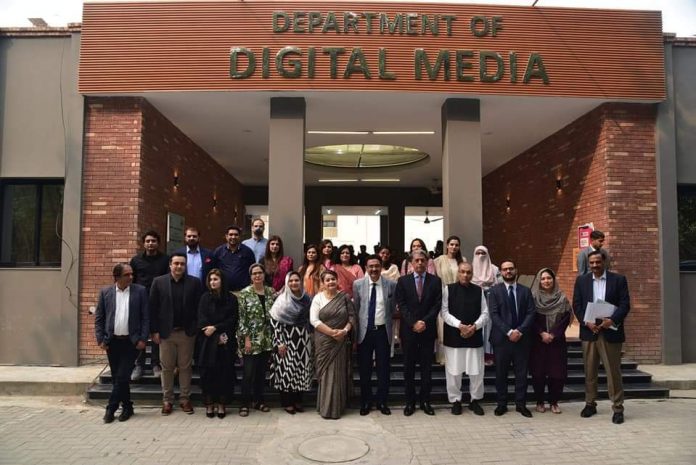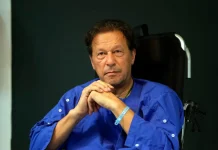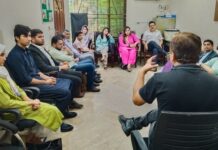Lahore:In efforts to foster a knowledge-based society in Pakistan, UNESCO, together with Media Foundation 360, launched consultations on formulating Media and Information Literacy strategy in Pakistan. The inaugural consultation was organised by the Department of Digital Media, School of Communication Studies, University of the Punjab.
In the consultation, participants proposed recommendations about how best to promote Media and Information Literacy in the country. UNESCO’s Media and Information Literacy framework equips citizens to critically evaluate information and responsibly engage with content especially online in a world marked by disinformation, and harmful content. UNESCO’s Media and Information Literacy framework aligns closely with Pakistan’s national priorities, supporting objectives of the Digital Vision of Pakistan and National Education Policy. By equipping citizens with digital literacy and critical thinking skills, the initiative seeks to cultivate a society that values responsible digital engagement and informed decision-making.
The consultation was attended by policymakers, media professionals, academics, and civil society experts, who provided their inputs for the draft strategy on Media and Information Literacy in Pakistan. The Lahore consultation marks the start of a series of district level discussions across Pakistan seeking inputs from various experts through a multi-stakeholder approach.
The opening session featured prominent speakers including Syed Tahir Raza Hamdani, Secretary of Information and Culture, Punjab, Prof. Dr. Muhammad Ali, Vice Chancellor of University of the Punjab, and Mr. Mujib ur Rehman Shami, renowned journalist and Chief Editor of Daily Pakistan. They emphasized the importance of Media and Information Literacy in empowering citizens to engage ethically and responsibly in the digital realm, thereby promoting social cohesion.
President Media Foundation 360 Mubasher Bukhari said that Media and Information Literacy is a much needed initiative in the age of disinformation, fake news and hate speech to strengthen democracy and promote tolerance in the society.
Prof. Dr. Savera Shami, Chairperson of the Department of Digital Media and Research Lead on Media and Information Literacy Strategy, briefed participants on the consultation’s objectives. Mr. Hamza Khan Swati, National Professional Officer, Communication and Information, UNESCO Office in Pakistan, reiterated UNESCO’s commitment to digital transformation and the strengthening of Media and Information Literacy in Pakistan.
The consultation featured three main sessions, each exploring areas to create a balance between media empowerment and regulatory oversight, integrating a framework to equip citizens with media and digital literacy and importance of incorporating Pakistan’s cultural and linguistic diversity into Media and Information Literacy policies to promote inclusivity and empower communities through culturally relevant content.
Throughout the consultations, participants proposed recommendations including advocacy and raising awareness among stakeholders especially youth on strengthening Media and Information Literacy skills and addressing challenges and opportunities for integrating Media and Information Literacy into country’s education system. Other recommendations included the need to develop rapid responses to disinformation enhancing media’s credibility through ensuring transparency and accountability of digital platforms, and promoting localized, culturally relevant content. Participants also highlighted the need to engage museums, libraries, and cultural centers to become active information-sharing institutions.
UNESCO will continue similar consultations in other provinces over the coming weeks.




